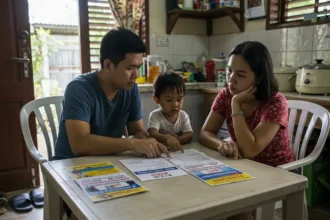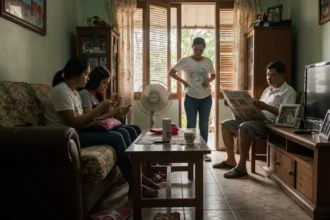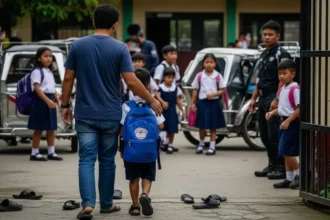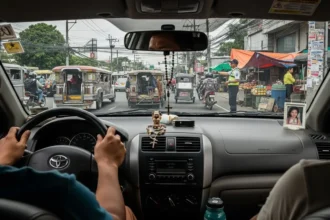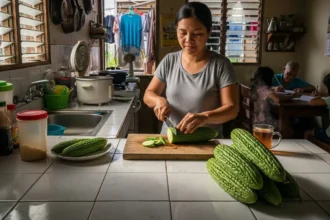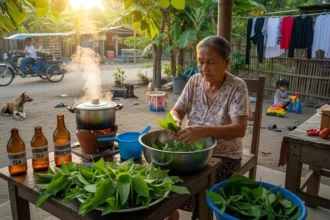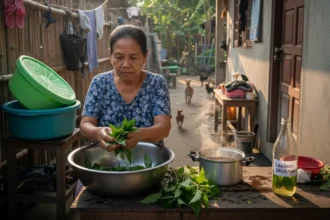Becoming a stepdad in the Philippines is not as simple as marrying someone with children. It means stepping into a complex role – one that blends love, patience, and cultural expectations. Unlike in movies where stepfathers are either saviors or villains, reality in the Philippines is far more nuanced. Stepdads here face a delicate balancing act: earning trust, respecting traditions, and creating harmony in a society where family bonds are deeply valued.
- ❤️ Winning Trust in a Blended Family
- 🏠 Navigating Cultural Expectations
- ⚖️ The Shadow of the Biological Father
- 💔 Dealing with Resistance and Rebellion
- 📚 Financial and Legal Responsibilities
- 🧠 The Emotional Toll of Stepdadding
- 🌏 Lessons from Other Cultures
- 🛠 Tips for Stepdads in the Philippines
- ❓ Frequently Asked Questions (FAQ)
- ✨ Stepdads and the Silent Heroism of Love
- 🧭 References
This feature takes a close look at the everyday struggles, victories, and lessons of being a Filipino stepdad.
❤️ Winning Trust in a Blended Family
Trust doesn’t come automatically. For children, a new stepdad can feel like a stranger suddenly entering their world. Some may resist, fearing that the stepfather is “replacing” their biological dad. Others may warm up quickly if the stepdad shows genuine care.
Filipino culture places great importance on pakikisama (harmonious relationships), and stepdads must apply it with consistency. That means:
- Showing love without forcing affection.
- Supporting but not overstepping boundaries.
- Being patient when kids test limits.
Trust is not built in weeks but over years. In many cases, the unspoken approval of the mother and grandparents also heavily influences how children accept a stepdad.
🏠 Navigating Cultural Expectations
In the Philippines, a father figure is expected to be both provider and protector. Stepdads often feel pressure to live up to these standards immediately, even when the emotional bond with the children is still fragile.
This cultural backdrop means that a stepdad who fails to provide financially may face judgment, regardless of his efforts in love and care. On the flip side, some children may accept a stepdad more quickly if he eases the household’s financial burdens.
The challenge lies in balancing cultural duty with emotional connection. A stepdad must show that he’s not just a wallet but a father in every sense.
⚖️ The Shadow of the Biological Father
One of the hardest realities for stepdads is dealing with the presence – or absence – of the biological father. In some cases, kids maintain a close relationship with their dad, which can leave stepfathers feeling like second place. In other cases, the biological father is absent or uninvolved, leaving stepdads with the double task of filling the emotional gap and rebuilding trust.
Filipino children raised with strong family ties may compare the stepdad to their father constantly. To navigate this, wise stepfathers avoid competition. Instead of trying to replace the dad, they create a new role: mentor, guide, and steady presence.
💔 Dealing with Resistance and Rebellion
Not all children are quick to accept a stepdad. Some resist, showing coldness, sarcasm, or outright defiance. Older kids and teens, especially, may resent a stepdad for “changing the family dynamic.”
Stepdads must prepare for:
- Silent treatment or emotional walls.
- Testing authority to see how far they can push.
- Emotional comparisons with the biological dad.
This resistance is not necessarily rejection. Often, it’s a test of sincerity. A stepdad who remains patient and consistent will slowly break down those walls. But it’s also important for the mother to play mediator, ensuring the child knows the stepfather is not there to erase the past, but to build a healthier present.
📚 Financial and Legal Responsibilities
In the Philippines, stepfathers often assume financial responsibilities for their stepchildren, especially if the biological father is absent or delinquent in support. This includes daily needs, school expenses, and even future milestones like weddings or college.
Legally, however, a stepdad’s rights are limited unless he adopts the child formally. Adoption in the Philippines is a lengthy and costly process, and many stepfathers remain in a gray zone of responsibility without authority. They may pay for everything but have little say in major legal decisions.
This disconnect can be emotionally draining – being expected to act like a father without the full rights of one.
🧠 The Emotional Toll of Stepdadding
Behind the smiles and sacrifices, many stepdads silently wrestle with doubts. Am I doing enough? Will the kids ever see me as a real father? Will I always be second-best?
The emotional toll can be heavy, especially when efforts are unreciprocated. Support systems like friends, counseling, or men’s groups are rare in the Philippines, where emotional struggles of fathers are often under-discussed.
A healthy stepdad must learn to acknowledge his own emotions, talk with his partner openly, and avoid bottling up frustrations. Parenting is hard; step-parenting can be harder. But silence only deepens the struggle.
🌏 Lessons from Other Cultures
Stepfathers face challenges worldwide, but cultural responses vary:
- In the U.S., blended family therapy is common, and stepdads are encouraged to take on a mentoring role.
- In Japan, stepfathers are often seen as secondary, with more emphasis placed on the mother.
- In Latin America, much like the Philippines, stepfathers are expected to take full financial responsibility quickly.
Comparing these cultures highlights that Filipino stepdads are not alone. But unlike in some countries, Filipino stepfathers face stronger societal expectations to “step up” immediately, regardless of emotional readiness.
🛠 Tips for Stepdads in the Philippines
- Be patient: Acceptance takes time.
- Communicate openly with your partner and the children.
- Avoid comparisons with the biological father.
- Show consistency: kids trust what they see repeatedly.
- Respect boundaries: let the child set the pace of affection.
- Invest in experiences: build memories, not just obligations.
❓ Frequently Asked Questions (FAQ)
Q1: How long does it take for kids to accept a stepdad?
It varies widely. Some kids open up in months, while others may take years. The key is consistent patience and genuine love.
Q2: Can a stepdad legally adopt stepchildren in the Philippines?
Yes, but adoption is a long, costly process involving court approval. Without adoption, a stepdad has financial and emotional responsibilities but limited legal rights.
Q3: Do Filipino children usually accept stepfathers easily?
Not always. Younger children may adapt more quickly, while older children and teens often resist at first. Acceptance depends on the stepdad’s sincerity and the mother’s support.
Q4: What if the biological father is still in the picture?
Stepdads should avoid competing. Instead, they should focus on creating their own bond with the child while respecting the father’s role.
Q5: Is financial support expected of stepdads?
Yes, in most Filipino households, stepdads are expected to provide financially, especially if the biological father is absent. This expectation is both cultural and practical.
Q6: How can stepdads deal with rejection from stepchildren?
Patience is crucial. Keep showing up consistently, but don’t force affection. Over time, children often recognize sincerity even if they resist at first.
Q7: Are stepdads treated differently in Filipino society?
Yes. They are often judged harshly – praised if they provide and criticized if they don’t. The societal pressure to “prove themselves” is strong.
Q8: What makes blended families succeed in the Philippines?
Open communication, mutual respect, and shared responsibilities. When stepdads, mothers, and extended families work as a team, blended families thrive.
✨ Stepdads and the Silent Heroism of Love
Being a stepdad in the Philippines is not just about stepping into a new marriage; it’s about stepping into a family’s unfinished story. It is a role filled with unspoken tests, cultural pressures, and invisible expectations. A stepdad is expected to provide like a father, love like a father, and protect like a father – often without the full recognition or legal authority of one.
And yet, this is where the silent heroism lies. Every patient conversation, every meal provided, every act of kindness that goes unnoticed builds something deeper than titles: it builds trust. It shows children that family is not only defined by blood but by commitment and presence.
The challenges are real – resistance from kids, the shadow of the biological father, financial burdens, and cultural judgments. But so too are the rewards: the first time a child calls you “dad,” the smile that signals trust, the moment when stepchildren look to you for guidance. These moments prove that stepdads can become true fathers not by biology, but by choice.
In a society where family is sacred, stepdads occupy a fragile but vital role. They are bridges between the past and the future, tasked with healing wounds while building hope. To every Filipino stepdad trying, failing, learning, and loving anyway: your struggle is not invisible. Your role is not second best. In many ways, it is the purest form of fatherhood – a fatherhood chosen, earned, and carried with both heart and courage.
🧭 References
-
Respicio PH – Requirements for Step-Parent Adoption in Philippines
-
DLSU Repository – Mobilizing against the Challenges of Being a Filipino Stepparent
-
Camella – The Evolution of Family Dynamics in the Philippines
-
Deborja Law – How to Adopt in the Philippines: A Step By Step Guide
-
Italian Married to Filipina Blog – How to be a Successful Stepfather
-
Inquirer Opinion – Rediscovery: Stepdad Adoption Experience




